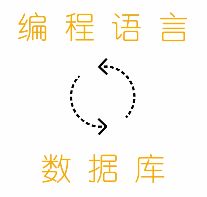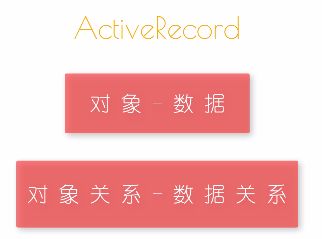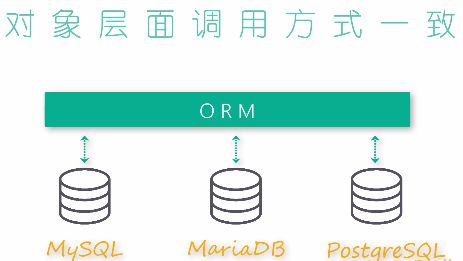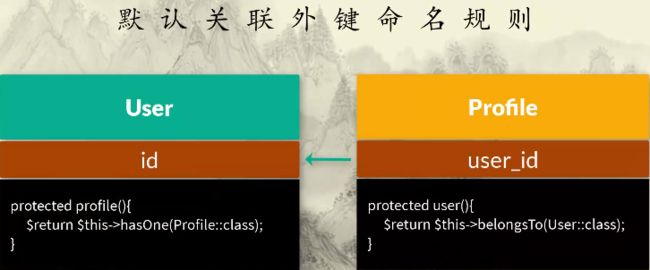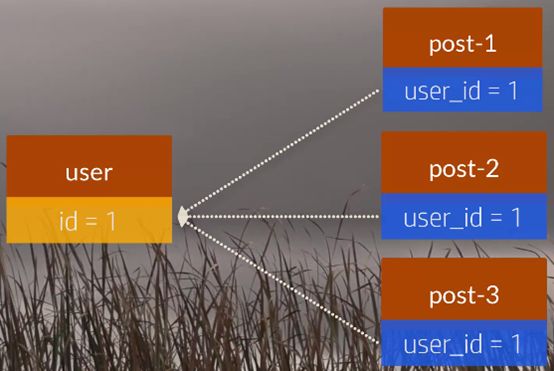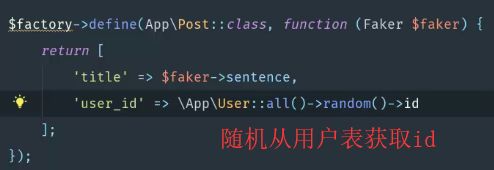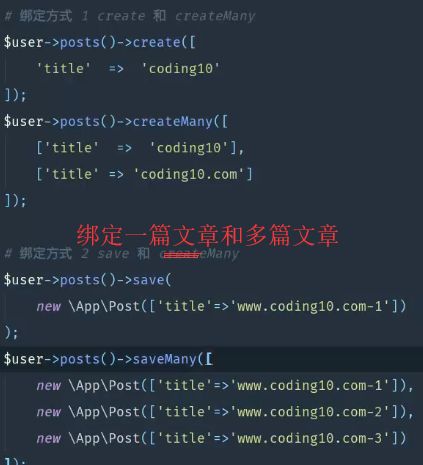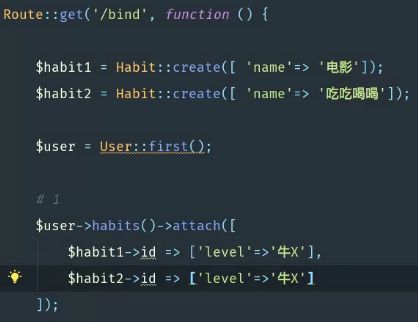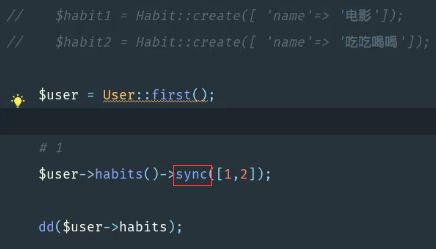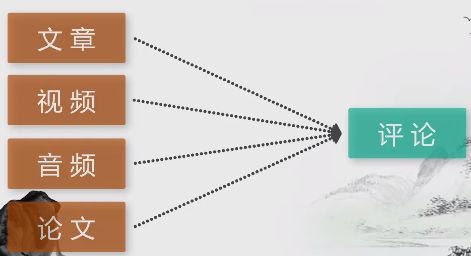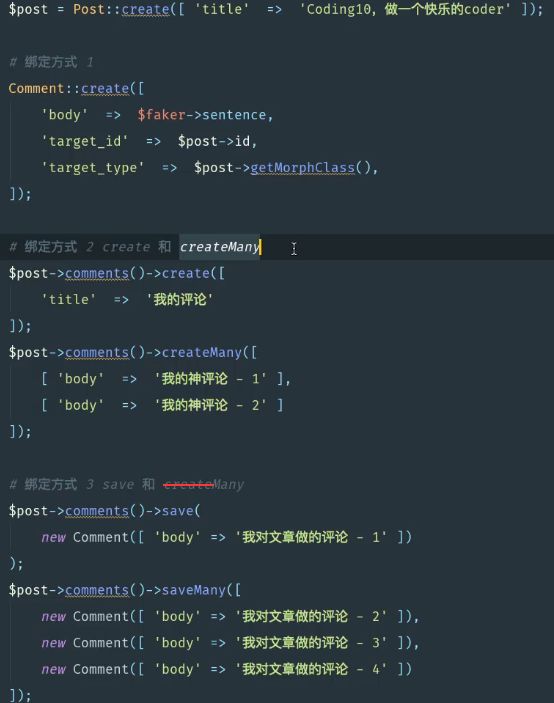一、ORM编程思想
1.1 Active Record 设计模式
Active Record 是一种数据访问设计模式,它可以帮助你实现数据对象Object到关系数据库的映射。应用Active Record时,每一个类的实例对象唯一对应一个数据库表的一行(一对一关系)。你只需继承一个abstract Active Record 类就可以使用该设计模式访问数据库,其最大的好处是使用非常简单
1.2 调试工具 Laravel Debugbar
https://github.com/barryvdh/l...
Installation:
composer require barryvdh/laravel-debugbar --dev
二、一对一关系映射
2.1 创建表
public function up()
{
Schema::create('profiles', function (Blueprint $table) {
$table->increments('id');
$table->string('phone');
$table->unsignedInteger('user_id');
//显示的声明外键:通知数据库根据外键关联表和建立索引,提高运行速度
$table->foreign('user_id')
->references('id')
->on('users')
->onDelete('cascade');
$table->timestamps();
});
}2.2 创建模型关系
2.2.1 正向关系绑定
public function profile()
{
return $this->hasOne(Profile::class);
}2.2.2 反向关系绑定
public function user()
{
return $this->belongsTo(User::class);
}2.3 外键
自定义外键:
return $this->hasOne(Profile::class,'显示指定自定义外键');
2.4 一对一测试
依赖注入Request $request,获取当前登录用户$request->user()
Route::get('/test',function (Request $request){
//反向
// $profile = \App\Profile::find(1);
// dd($profile->user);
$user = $request->user();
// if (is_null($user->profile)){
// $user->profile()->create([
// 'phone' => '15801340269'
// ]);
// }
//用firstOrCreate改进if
$user->profile()->firstOrCreate(['user_id' => $user->id],[
'phone' => '18363046291'
]);
//访问属性一样访问方法
dd($user->profile);
});三、一对多关系映射
1:N hasMany(XXX:class)
反之:belongsTo(XXX:class)
3.1 面向对象方式绑定一对多的关系
四、多对多关系映射
中间表命名:按照A-Z首字母排序
public function users()
{
return $this->belongsToMany(User::class);
}
public function habits()
{
return $this->belongsToMany(Habit::class);
}4.1 面向对象方式绑定多对多的关系
4.2 访问多对多中间数据表
![]()
五、HasManyThrough对象桥接式穿越关联(远层一对多)
数据表:
countries
id - integer
name - string
users
id - integer
country_id - integer
name - string
posts
id - integer
user_id - integer
title - stringclass Country extends Model
{
protected $fillable = ['name'];
/**
* 获得某个国家下所有的用户文章。
*/
public function papers()
{
return $this->hasManyThrough(Paper::class,User::class);
}
}$factory->define(App\Paper::class, function (Faker $faker) {
return [
'title' => $faker->sentence,
'user_id' => \App\User::all()->random()->id,
];
});![]()
$factory->define(App\User::class, function (Faker $faker) {
return [
'name' => $faker->name,
'email' => $faker->unique()->safeEmail,
'country_id' => \App\Country::all()->random()->id,
'password' => '$2y$10$TKh8H1.PfQx37YgCzwiKb.KjNyWgaHb9cbcoQgdIVFlYg7B77UdFm', // secret
'remember_token' => str_random(10),
];
});![]()
获取每个国家论文总数:
五、多样化的一对多关系映射(多态关联)
面向对象多态:运行时加载机制
更多:https://laravel-china.org/doc...
伪造数据: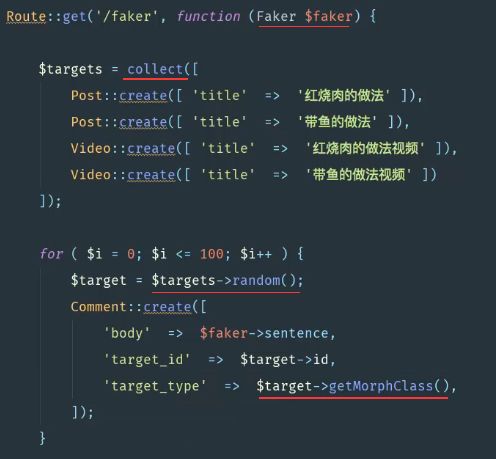
六、多对多多态关联
除了传统的多态关联,您也可以定义「多对多」的多态关联。例如,Post 模型和 Video 模型可以共享一个多态关联至 Tag 模型。 使用多对多多态关联可以让您在文章和视频中共享唯一的标签列表。
更多:https://laravel-china.org/doc...
参考教程:Coding 10编程原动力-Eloquent ORM
Laravel 中文文档:Eloquent:关联
